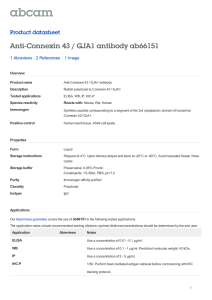Anti-SLC37A4 antibody ab90075 Product datasheet 1 Image
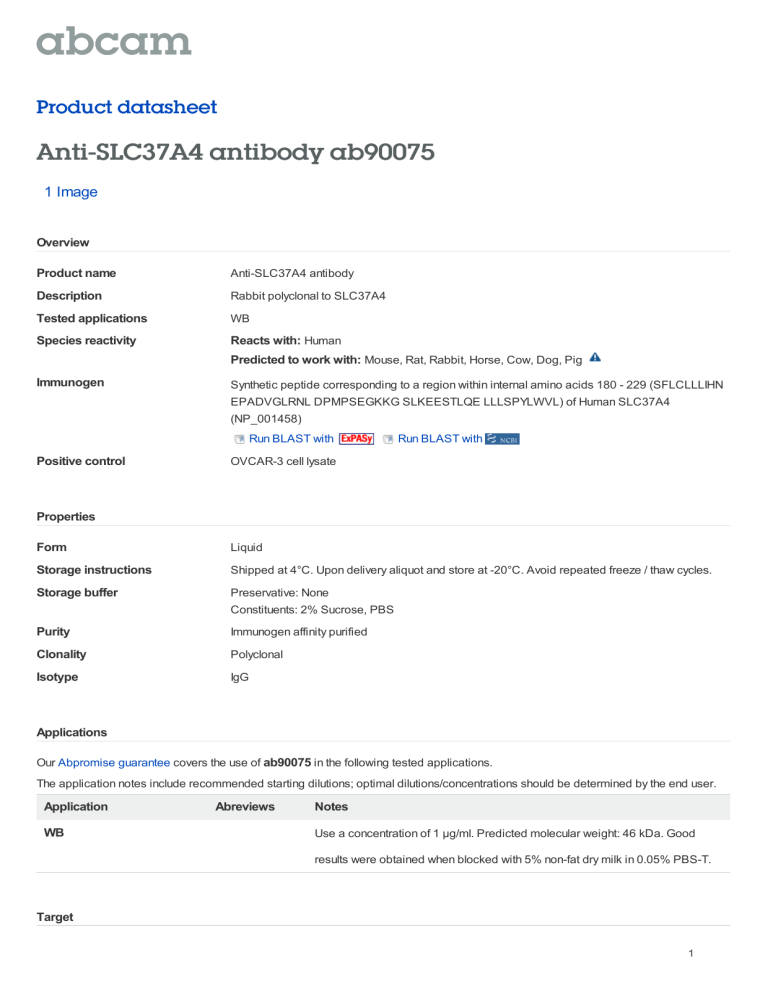
1 Image
Overview
Product name
Description
Tested applications
Species reactivity
Immunogen
Anti-SLC37A4 antibody
Rabbit polyclonal to SLC37A4
WB
Reacts with: Human
Predicted to work with: Mouse, Rat, Rabbit, Horse, Cow, Dog, Pig
Synthetic peptide corresponding to a region within internal amino acids 180 - 229 (SFLCLLLIHN
EPADVGLRNL DPMPSEGKKG SLKEESTLQE LLLSPYLWVL) of Human SLC37A4
(NP_001458)
Run BLAST with Run BLAST with
OVCAR-3 cell lysate Positive control
Properties
Form
Storage instructions
Storage buffer
Purity
Clonality
Isotype
Liquid
Shipped at 4°C. Upon delivery aliquot and store at -20°C. Avoid repeated freeze / thaw cycles.
Preservative: None
Constituents: 2% Sucrose, PBS
Immunogen affinity purified
Polyclonal
IgG
Applications
Our Abpromise guarantee covers the use of ab90075 in the following tested applications.
The application notes include recommended starting dilutions; optimal dilutions/concentrations should be determined by the end user.
Application Abreviews Notes
WB Use a concentration of 1 µg/ml. Predicted molecular weight: 46 kDa. Good results were obtained when blocked with 5% non-fat dry milk in 0.05% PBS-T.
Target
1
Function
Tissue specificity
Involvement in disease
Sequence similarities
Cellular localization
Transports glucose-6-phosphate from the cytoplasm to the lumen of the endoplasmic reticulum.
Forms with glucose-6-phosphatase the complex responsible for glucose production through glycogenolysis and gluconeogenesis. Hence, it plays a central role in homeostatic regulation of blood glucose levels.
Mostly expressed in liver and kidney.
Defects in SLC37A4 are the cause of glycogen storage disease type 1B (GSD1B)
[MIM:232220]. GSD1B is a metabolic disorder characterized by impairment of terminal steps of glycogenolysis and gluconeogenesis. GSD1 patients manifest a wide range of clinical symptoms and biochemical abnormalities, including hypoglycemia, severe hepatomegaly due to excessive accumulation of glycogen, kidney enlargement, growth retardation, lactic acidemia, hyperlipidemia, and hyperuricemia. GSD1B patients also present a tendency towards infections associated with neutropenia, relapsing aphthous gingivostomatitis, and inflammatory bowel disease.
Defects in SLC37A4 are the cause of glycogen storage disease type 1C (GSD1C)
[MIM:232240].
Defects in SLC37A4 are the cause of glycogen storage disease type 1D (GSD1D)
[MIM:232240].
Belongs to the major facilitator superfamily. Organophosphate:Pi antiporter (OPA) (TC 2.A.1.4) family.
Endoplasmic reticulum membrane.
Anti-SLC37A4 antibody images
Anti-SLC37A4 antibody (ab90075) at 1 µg/ml
(in 5% skim milk / PBS buffer) + OVCAR-3 cell lysate at 10 µg
Secondary
HRP conjugated anti-Rabbit IgG at 1/50000 dilution
Predicted band size : 46 kDa
Western blot - SLC37A4 antibody (ab90075)
Please note: All products are "FOR RESEARCH USE ONLY AND ARE NOT INTENDED FOR DIAGNOSTIC OR THERAPEUTIC USE"
Our Abpromise to you: Quality guaranteed and expert technical support
Replacement or refund for products not performing as stated on the datasheet
Valid for 12 months from date of delivery
Response to your inquiry within 24 hours
We provide support in Chinese, English, French, German, Japanese and Spanish
Extensive multi-media technical resources to help you
We investigate all quality concerns to ensure our products perform to the highest standards
If the product does not perform as described on this datasheet, we will offer a refund or replacement. For full details of the Abpromise,
2
please visit http://www.abcam.com/abpromise or contact our technical team.
Terms and conditions
Guarantee only valid for products bought direct from Abcam or one of our authorized distributors
3
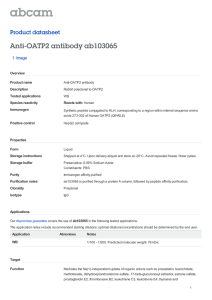
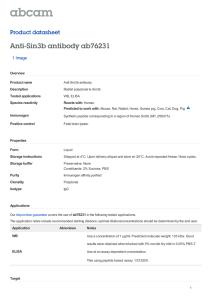
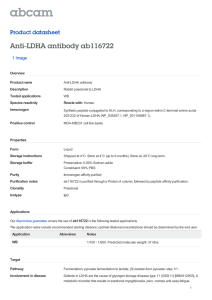
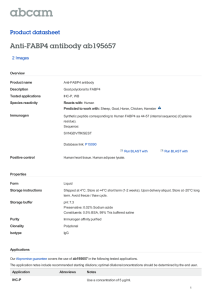
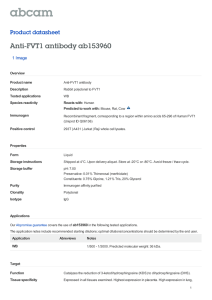
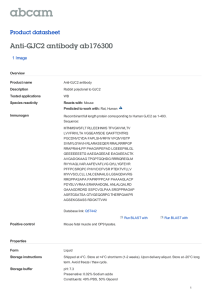
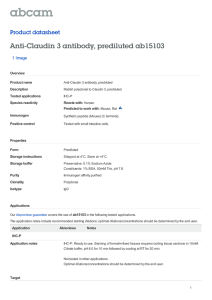
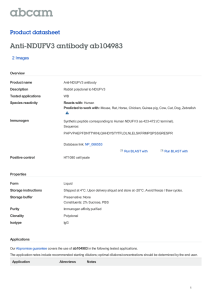
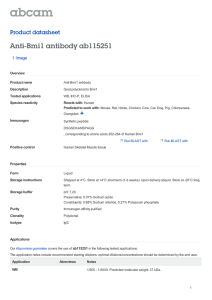
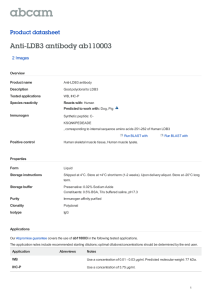
![Anti-RANK antibody [MM0521-7G22] ab89912 Product datasheet 1 Image Overview](http://s2.studylib.net/store/data/012513943_1-a142e800b0bd20ecc955292921c92a9e-300x300.png)
